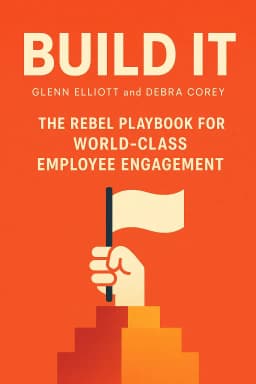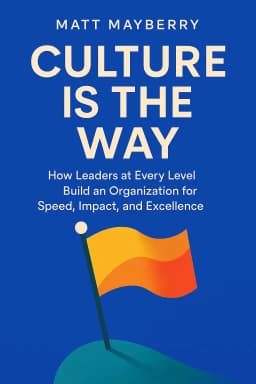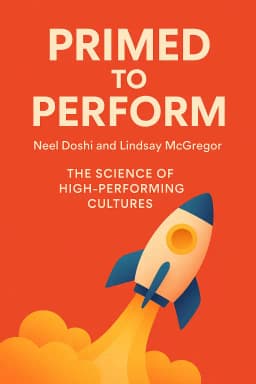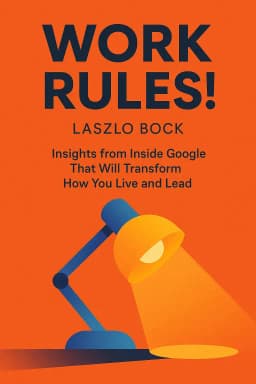
Beyond the Toxic Boss
The Rebel Playbook for World-Class Employee Engagement
Golden Hook & Introduction
SECTION
Michelle: A recent Gallup poll found that 70% of the reasons people hate their jobs comes down to one thing: their manager. But what if the problem isn't bad managers, but the bad playbook we give them? Mark: Wow, 70%? That's... a lot. And it puts all the blame on one person. It feels like we're always talking about "toxic bosses," but your question flips that. What if the system itself is toxic, and managers are just following the rules? Michelle: Exactly. And that's the provocative idea at the heart of the book we're diving into today: Build It: The Rebel Playbook for World-Class Employee Engagement by Glenn Elliott and Debra Corey. Mark: A 'rebel' playbook. I like the sound of that. It doesn't sound like your typical corporate HR manual. Michelle: It's the complete opposite. And this isn't just theory. Elliott is the founder of Reward Gateway, a massive employee engagement tech company, and he co-wrote this after a decade of building his own 'rebel' culture. It's a playbook born from the trenches, and it’s become highly acclaimed for its practical, no-nonsense approach. Mark: Okay, so it’s written by someone who actually built a business, not just a consultant. That gets my attention. So what's the first rule these rebels want us to break?
The Rebel Philosophy: Deconstructing the Trust Deficit
SECTION
Michelle: The first rule is to stop lying. Or, to use the book's more corporate-friendly term, to stop "under-communicating." The authors argue that most companies operate on a foundation of mistrust, and it starts at the very top. They cite a fascinating study from the 80s that came up with a concept called the "Iceberg of Ignorance." Mark: The Iceberg of Ignorance? That sounds like the ship I'm sailing on most Mondays. Is it like the Titanic, where the captain has no idea what's really happening below deck? Michelle: That's a perfect analogy. The study found that top executives are typically only aware of about 4% of the real front-line problems in their organization. Four percent! Meanwhile, the front-line employees know 100% of them. There's this massive, 96% gap of reality that leadership is completely blind to. Mark: That is terrifying. So while the CEO is giving a speech about synergy and smooth sailing, the people in the engine room are literally bailing out water with buckets and know the ship is going down. Michelle: Precisely. And the book argues this happens because information is managed, filtered, and spun as it moves up the chain of command. Richard Plepler, the former CEO of HBO, had a brilliant line about this. He used to say, "The building knows the truth." You can't hide that a project is failing or that a department is in chaos. Your people already know. When leadership pretends everything is fine, they don't look strong; they look clueless. And that's where trust begins to die. Mark: Right, because you can't trust a leader who is either lying to you or is so disconnected they don't even know they're lying. It creates this "us versus them" feeling. Michelle: And it gets even more controversial. The book takes aim at one of the most sacred corporate practices: the silence around why people leave. Think about it. When someone is fired or suddenly leaves, what’s the official company line? Mark: Oh, it's always the same vague email. "We wish so-and-so the best in their future endeavors." And then everyone spends the next two weeks gossiping and speculating about what really happened. Was it a scandal? Did they get poached? Was it that disastrous project from last quarter? Michelle: Exactly. An information vacuum. And fear and cynicism rush in to fill it. The authors argue that this standard practice, often driven by HR and legal departments to avoid lawsuits, does way more damage to the trust of the remaining employees than it prevents. Glenn Elliott, at his own company, implemented a radical policy: they would never sign a settlement agreement that prevented them from explaining to the team why someone was let go. Mark: Hold on. Being that honest about why someone was fired sounds like a legal and HR nightmare. Isn't that why companies have those policies in the first place? To protect themselves? Michelle: It is. And that’s the core of the rebel philosophy. The book quotes Patty McCord, the former Chief Talent Officer at Netflix, who basically says that HR departments operate as if every employee is about to sue them. So they create all these rules. But the authors argue that the cost of lost trust from your entire remaining workforce is far greater than the potential legal risk from one departing employee. When your best people see a high-performer who is a toxic team member—a "brilliant jerk"—get fired, and you're honest about why, it sends a powerful message: we protect the team. We live our values. That builds more trust than a thousand corporate posters about integrity ever could. Mark: That makes a strange kind of sense. You’re not managing for the 1% of people who might cause a problem; you’re managing for the 99% who are doing the right thing and want to work in a healthy environment. You're choosing to trust your people over fearing them. Michelle: You've nailed it. It's about choosing trust over fear. And that choice is the foundation of the entire Engagement Bridge. It's a fundamental shift in perspective.
Building the Bridge: Radical Transparency and Purpose as Tools
SECTION
Mark: Okay, so if the old playbook is built on fear and secrecy, what does the rebel playbook build on? How do you actually construct that trust you're talking about? Michelle: This is where we get to the really fun, and for some, terrifying, part of the book. It’s about building the "connecting elements" of their Engagement Bridge™ model, and the two most powerful are radical transparency and a deeply embedded purpose. Mark: Radical transparency. That sounds... intense. What does that look like in practice? Michelle: Well, let's take the most extreme example from the book: a company called Buffer. They decided to make their value of "Default to Transparency" real. So, they published every single employee's salary, and the formula used to calculate it, on a public website for the entire world to see. Mark: Wait, they post everyone's salary online for the world to see? My first thought is just... chaos. Envy, arguments, people demanding raises... how does that not implode a company? Michelle: That's the reaction everyone has! But the book explains the logic, and it's brilliant. First, it forces the company to have a pay structure that is genuinely fair and defensible. You can't have weird, biased, or inconsistent salaries if you know you have to justify them to everyone. It eliminates the gender pay gap overnight. Second, it kills the gossip and speculation that eats away at morale. No more wondering if the guy next to you is making more for the same work. Mark: So it removes a major source of distraction and resentment. Michelle: Exactly. And third, and this is the rebel genius of it, it acts as a cultural filter. The kind of person who is horrified by that level of openness probably wouldn't thrive in their culture anyway. But the person who finds it refreshing and fair? That's exactly who they want to attract. They said that when they first did it, their job applications went up by 50%. It became a competitive advantage. Mark: Wow. So the transparency itself becomes a tool for recruiting. You're not just telling people your values; you're making them live inside a system built on those values. It’s a bit like a 'No Brilliant Jerks' policy, but for pay. Michelle: That's a great connection. The "No Brilliant Jerks" rule, which the book also discusses in the context of companies like Netflix, is another perfect example of this. A "brilliant jerk" is that high-performing salesperson who hits all their targets but is toxic to the team, creating drama and making everyone else miserable. Mark: Oh, I think we've all worked with one of those. The person management is afraid to touch because their numbers look so good on a spreadsheet. Michelle: Right. And most companies tolerate them. But a 'rebel' company fires them. Instantly. The book's point is that the short-term loss of that person's individual performance is nothing compared to the long-term gain in the engagement, trust, and collective performance of the entire team you just saved. When you do that, your values—like "Teamwork" or "Respect"—stop being just words on a wall. They become a real, living thing that you are willing to defend, even when it's hard. Mark: It’s about proving that the health of the team is more important than any single individual's output. That's a powerful statement. It makes people feel safe. Michelle: It makes them feel safe, and it connects them to a purpose. The book tells a powerful story about the GM Holden car plant in Australia. In 2013, they announced the plant would be closing in a few years. It was the end of an era. Mark: That must have been devastating for morale. I can't imagine a more disengaging situation. Why would anyone care about quality when they know they're losing their job? Michelle: That’s what you’d expect. But the local leaders did the opposite of what most companies would do. They ramped up engagement. They were brutally honest about the timeline, they listened to everyone's concerns, and they focused the entire team on a single, powerful mission: to make the last car that rolled off their line the best car they had ever built. Mark: That gives me chills. Michelle: And it worked. In the face of closure, their key metrics for engagement and quality actually went up. They rallied around a shared purpose, to leave with their heads held high. It proves the book's point that engagement isn't about perks like free snacks or ping-pong tables. It's about respect, trust, and a meaningful mission, even in the most difficult circumstances.
Synthesis & Takeaways
SECTION
Mark: So when you put it all together, it seems like the whole 'rebel' idea isn't about anarchy or breaking rules for the sake of it. It's about replacing the old, fear-based corporate playbook with a new set of principles built on authentic trust and transparency. Michelle: Exactly. The book argues that the biggest risk a company faces isn't a lawsuit; it's a disengaged workforce that is just going through the motions. There's a Harvard Business Review survey they mention that is just staggering: 71% of leaders say employee engagement is critical to their success, but only 24% believe their employees are actually engaged. This rebel playbook is about how you close that massive, terrifying gap. Mark: It’s about treating people like adults who can handle the truth. Which, when you say it out loud, sounds so simple, but it's so rare in practice. So for a manager or a leader listening to this, who feels inspired but maybe can't go full-rebel and publish everyone's salary tomorrow, what's the one small 'rebel' act they could try? Michelle: The book has a great piece of advice for this: "Start where you can act fastest." Don't try to boil the ocean. Maybe it's just being radically honest in your next team meeting about a real challenge the team is facing, instead of spinning it with corporate jargon. Ask for their help. See what happens when you trust your team with the truth. Mark: I love that. It’s a small act of rebellion against the "Iceberg of Ignorance." A tiny crack in the ice. Michelle: A tiny crack that can let a lot of light in. We'd love to hear from our listeners. What's the most 'rebel' thing your company does that actually works? Or what's a rule you wish your company would break? Find us on our socials and share your story. Mark: This is Aibrary, signing off.









